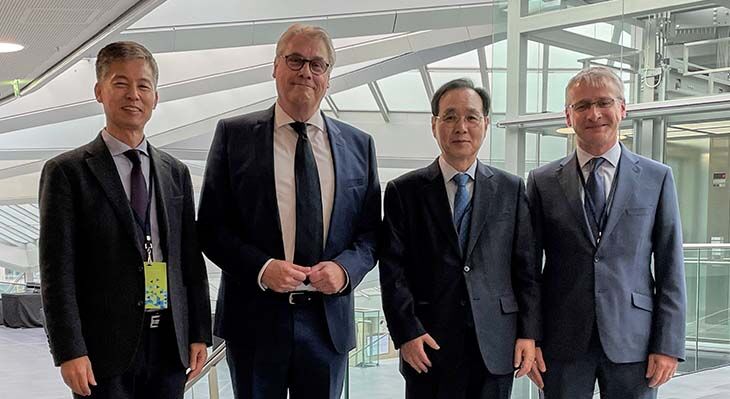BIBB and South Korea join forces to conduct research into the future of work and of VET
14.11.2022
The recent BIBB Congress afforded an opportunity for the President of KRIVET, our South Korean partner institute, to engage with BIBB’s senior management on a personal level.
Numerous international representatives from the fields of policy making and practice were amongst the guests attending the two-day BIBB Congress “Future Skills – Thinking about Progress”. One such visitor was the President of the Korea Research Institute for Vocational Education and Training (KRIVET), who arrived with a delegation in order to be able to network with the participating experts. Dr. Me-Rhan Kim, a Senior Research Fellow at KRIVET, delivered a keynote address during the Thinking Space “Shaping digital transformation”. Her aim was to share insights into a survey that has been carried out on work organisation and on the tasks and task profiles of skilled workers at small and medium-sized enterprises in the industrial and technical sector in South Korea.
Senior management from both BIBB and KRIVET met up on the fringes of the congress to discuss ongoing and future academic research collaboration. The focus in the current cooperation phase (2021–2024) is on issues relating to the reciprocal effects on digitalisation and decarbonisation, both on trade and industry and society on the one hand and on VET and work on the other. Researchers from KRIVET and BIBB are presently using employee datasets to investigate differences and commonalities of tasks and jobs as part of a project entitled “Occupational tasks and requirements in international comparative terms” (2018–2023). In the countries themselves, the results will help inform the structuring of occupational profiles and training for digital and ecological transformation.
During the discussions, KRIVET President Jang-soo Ryu underlined that both institutes wished to intensify research cooperation. Professor Friedrich Hubert Esser, President of BIBB, stressed that Germany and South Korea were facing similar challenges in terms of ensuring the transformation to a digital and sustainable economy by encouraging young people into vocational education and training. For this reason, the emphasis over the coming years needed to be placed on continuing networking between the two institutes on education and training policy issues. Possible vehicles for this included study visits by guest researchers and joint conferences and workshops.
